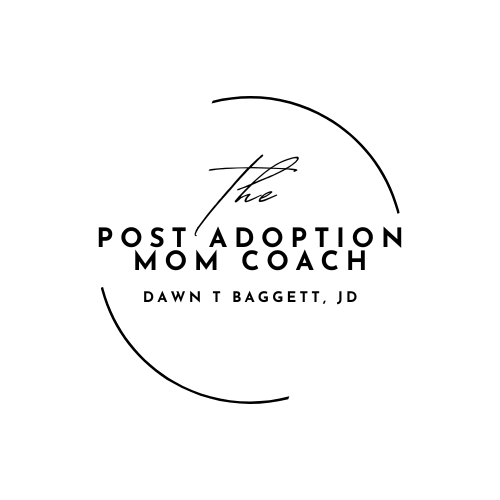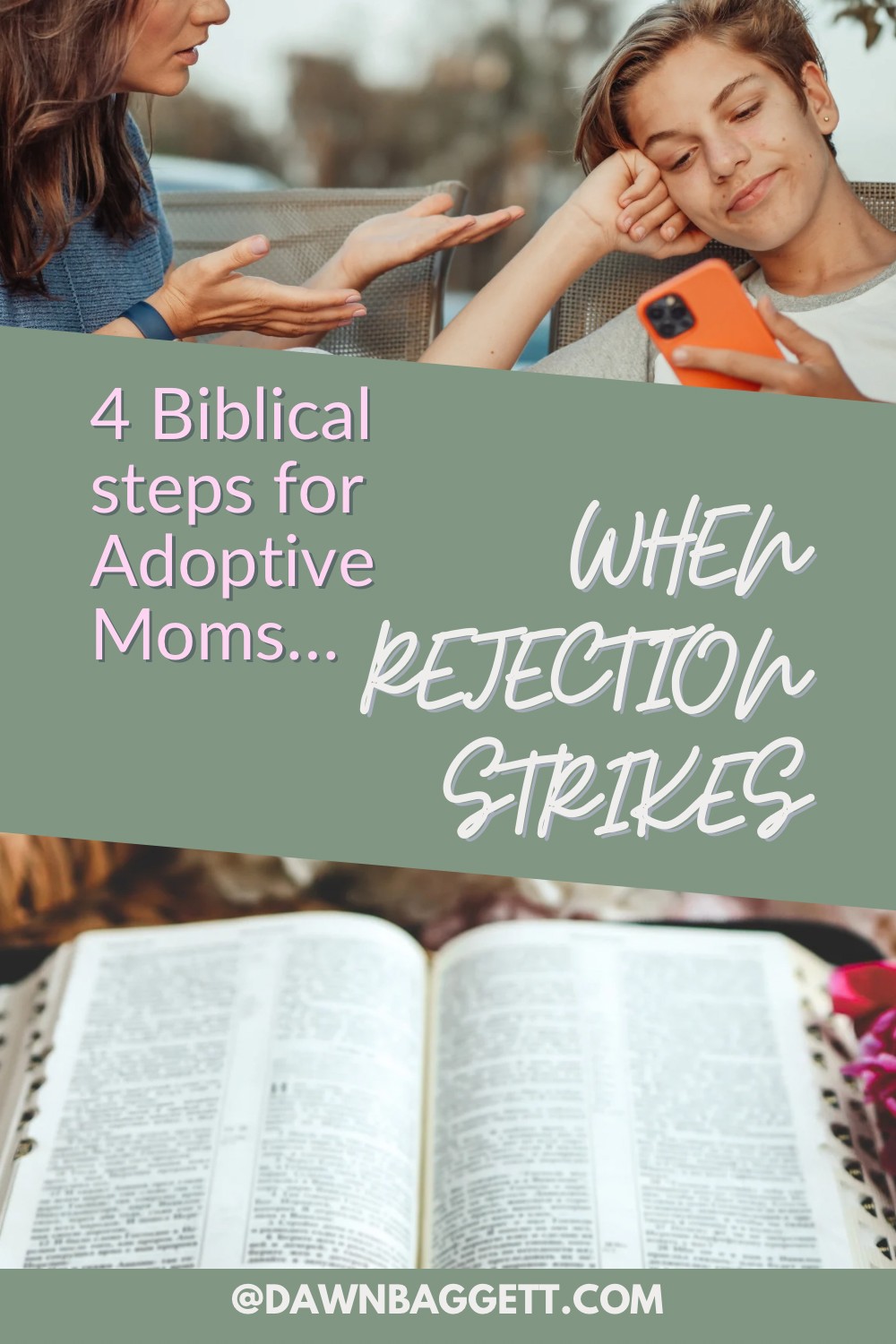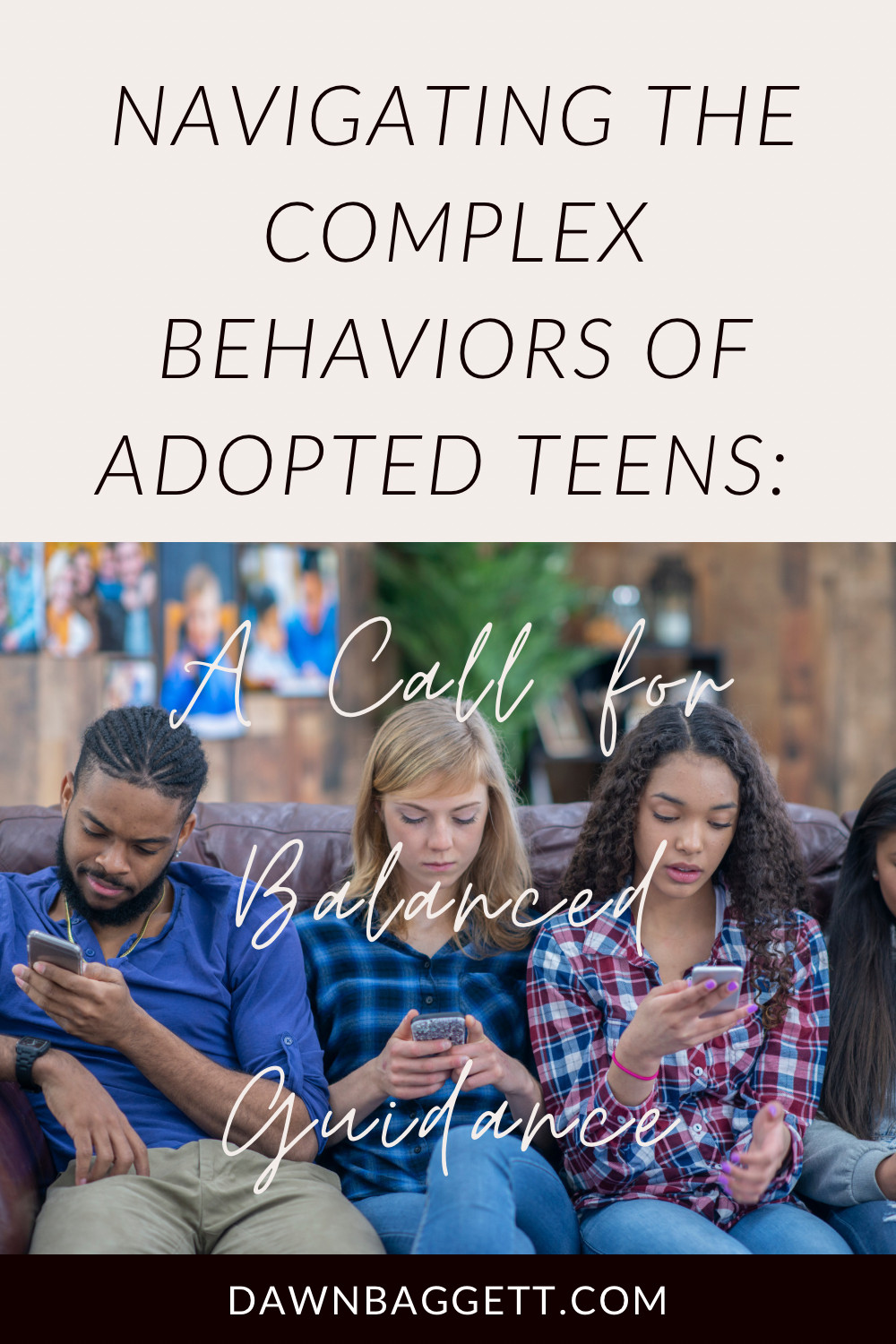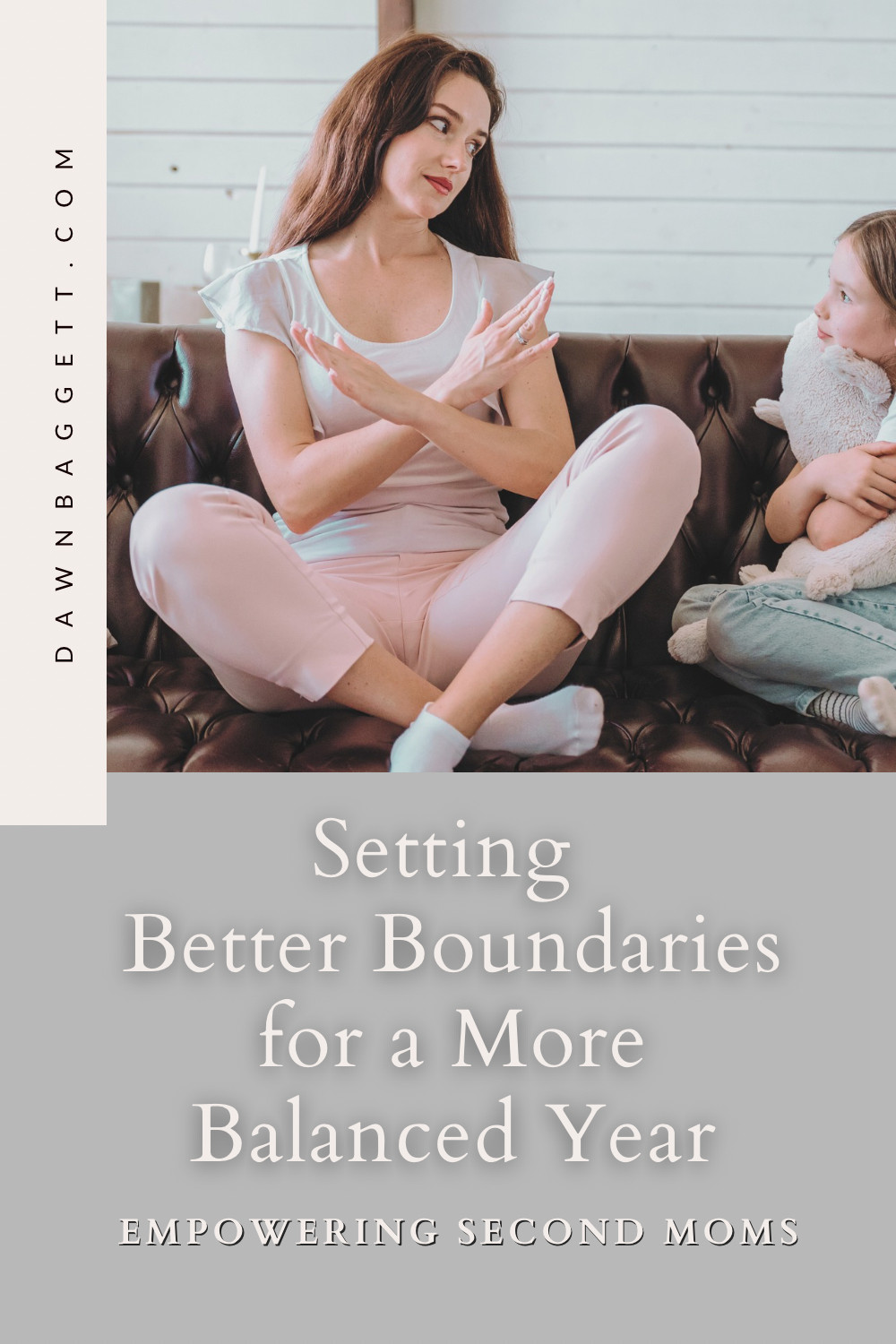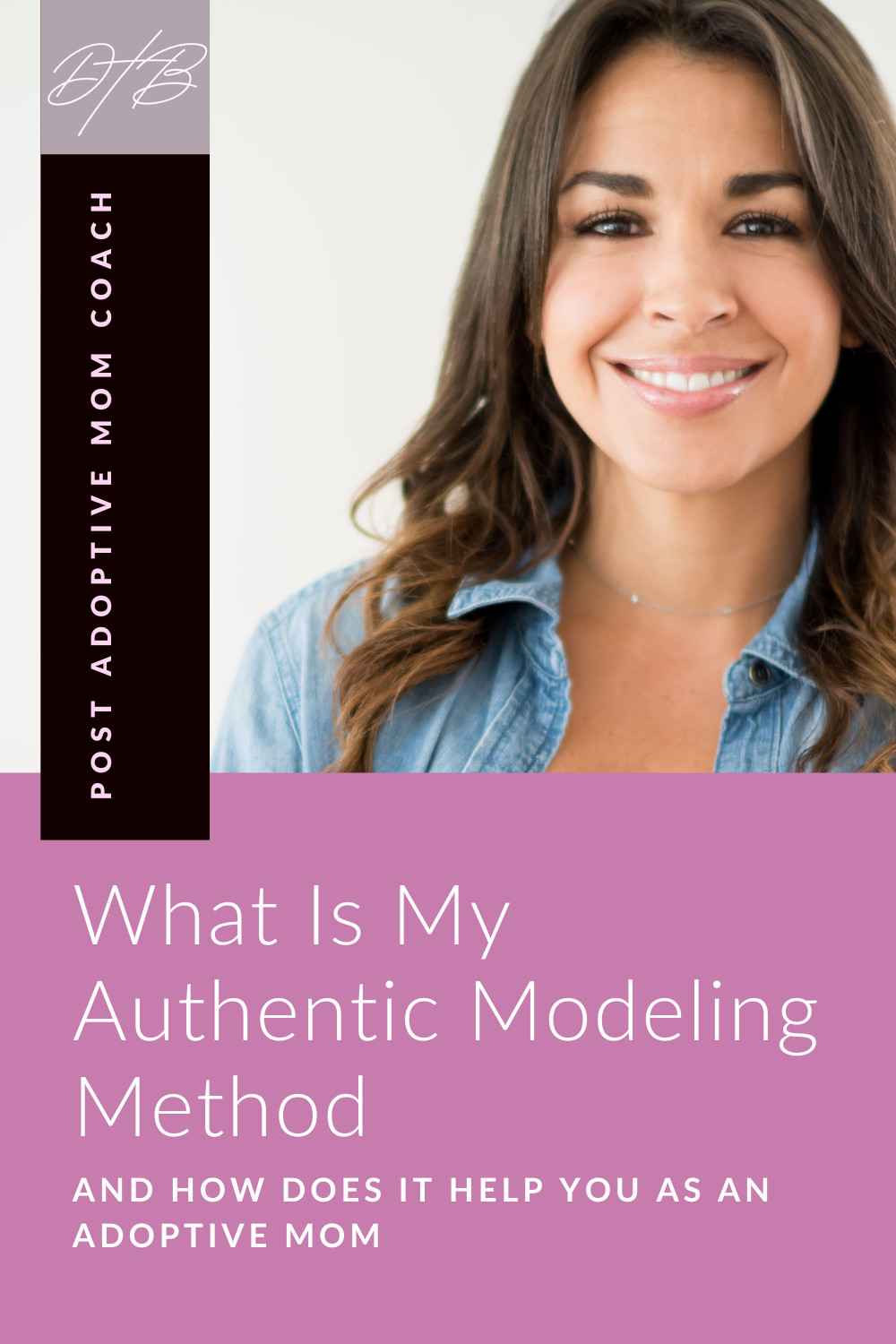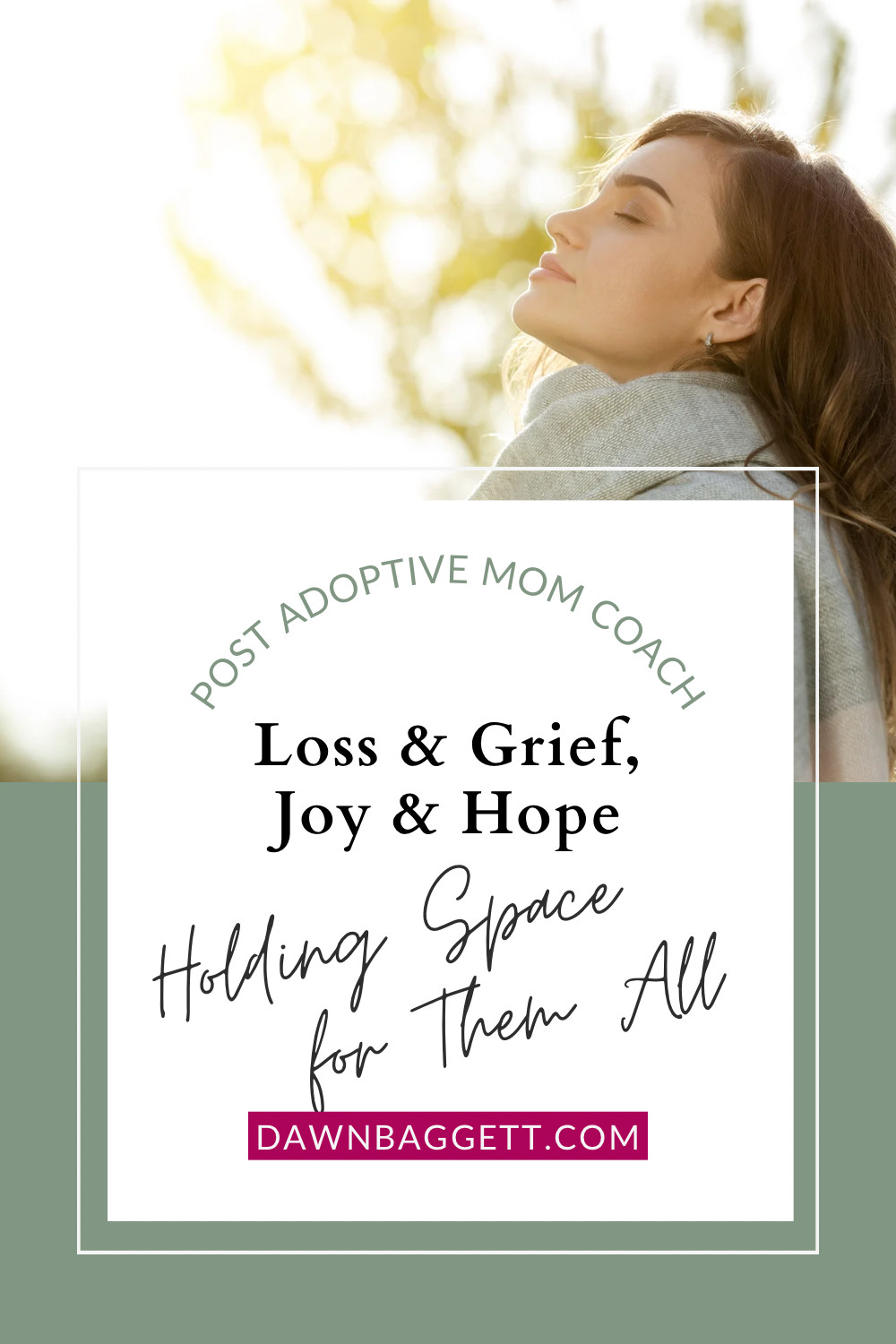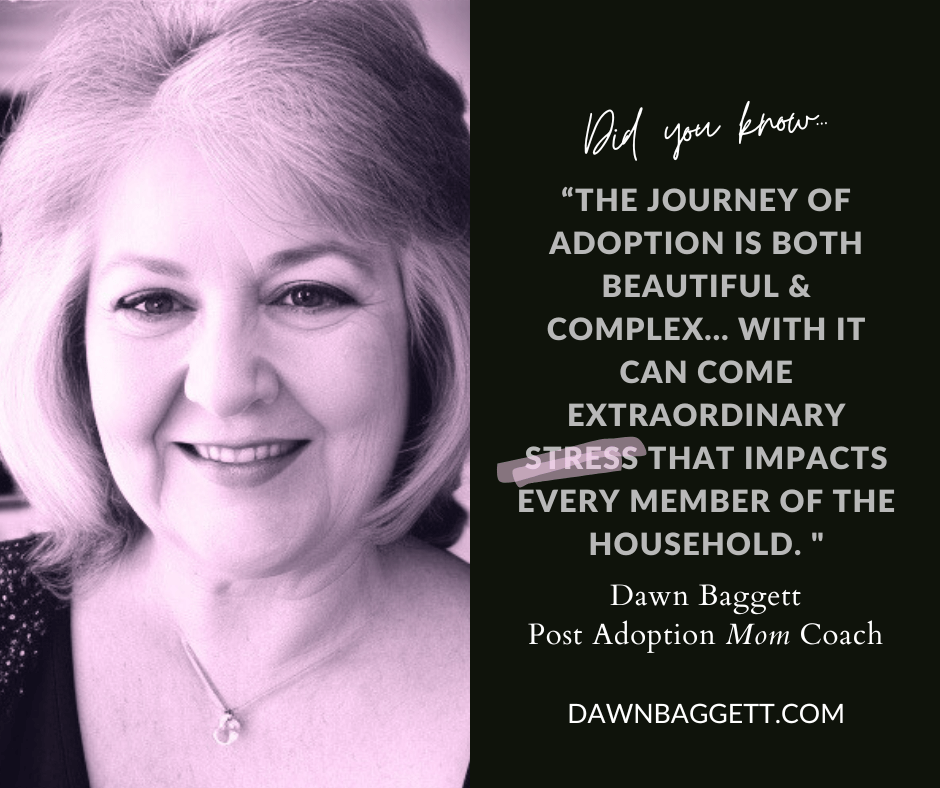
As an experienced adoptive mom and a life coach for Christian adoptive mothers, I recognize the added challenges that our families face. The journey of adoption is both beautiful and complex, and with it can come extraordinary stress that impacts every member of the household.
Yet, as believers and followers of Jesus Christ, we have a profound source of strength and guidance in our faith. Today, we’ll explore a trauma-informed, biblically-centered approach to understanding and managing stress in adoptive families.
Additional Stressors in Adoptive Families
Every family faces stress, but adoptive families often encounter additional layers of complexity. Among others, these may include:
- Attachment Challenges: Building trust and attachment can sometimes take years, leading to frustration and emotional strain. For everyone.
- Behavioral Issues: Traumas experienced before adoption can manifest in challenging behaviors that require extreme patience, understanding, skills and specialized care.
- Identity Struggles: Transracial or cross-cultural adoptions can lead to identity and belonging issues. The family unit may begin to feel less stable to even the adoptive parents and their biological children.
- Financial Stress: Adoption processes and post-adoption needs such as therapy or medical treatment can be financially burdensome.
-Historical Stress: Children can become conditioned to heightened levels of stress and the related biological effects such as higher levels of cortisol and adrenaline. Unprocessed grief and ongoing stress from learning/language/social/emotional delays can also factor in.
Trauma-Informed Strategies for Stress Management Aligned with Christian Faith
Understanding the types of stress responses within your family through a trauma-informed lens is crucial. Some practical strategies that align with our Christian values include:
1. Recognize & Validate Emotions
It’s important to acknowledge the emotions each family member is experiencing. Reflect on Romans 12:15 -
“Rejoice with those who rejoice; mourn with those who mourn.”
This encourages us to empathize and validate each other’s feelings as Christ does with us. Be careful. This does NOT mean you must absorb their emotions as your own, or invalidate/bury your feelings.
2. Create Safe Spaces for Expression
Building an environment where open, honest communication is welcomed reduces stress significantly. Ephesians 4:29 reminds us,
“Do not let any unwholesome talk come out of your mouths, but only what is helpful for building others up according to their needs.”
This verse guides us to foster supportive conversations that strengthen our bonds. While we cannot force our children to follow our example, we can commit to providing the best possible example we can and learn the communication skills needed to do so.
3. Implement Routine & Structure (with flexibility)
Predictability helps children from traumatic backgrounds feel secure. Proverbs 22:6 advises,
“Start children off on the way they should go, and even when they are old they will not turn from it.”
Our children may have had some bad starts in which security was lacking. Structured routines may help create a calming framework. A caution here. Take care not to allow the routine to re-order the relationship. Routines and schedules are tools that are meant to work FOR you, not against you. Don’t let your child become a little dictator of the routine you devised.
4. Teach and Model Healthy Coping Mechanisms
Demonstrating healthy ways to manage stress for yourself can be highly beneficial. Philippians 4:6-7 is a cornerstone here:
“Do not be anxious about anything, but in every situation, by prayer and petition, with thanksgiving, present your requests to God. And the peace of God, which transcends all understanding, will guard your hearts and your minds in Christ Jesus.”
Prayer and gratitude can be powerful tools for stress relief. As we model this in our own lives, we provide an example for our children to follow…eventually.
5. Seek Professional Help When Needed
Sometimes, professional help that’s aligned with Christian values is necessary. Proverbs 11:14 emphasizes,
“For lack of guidance a nation falls, but victory is won through many advisers.”
Utilizing professional support affirms our need for guidance from those skilled in trauma and adoption-related issues. I caution you to be careful about which professionals you use for your child and for yourself. The wrong person/people in this place of influence can do much harm.
Leaning on God’s Peace & Promises with a long range view
Scripture is replete with verses that remind us of God’s everlasting peace and promises. Here are a few to carry with you:
- Isaiah 26:3: “You will keep in perfect peace those whose minds are steadfast because they trust in you.” God’s promise of perfect peace is something we can invite into our homes.
- Psalm 55:22: “Cast your cares on the Lord and he will sustain you; he will never let the righteous be shaken.” We’re assured that God will sustain us, even through our worries and stress.
- Matthew 11:28-30: “Come to me, all you who are weary and burdened, and I will give you rest.” Jesus’s invitation is a reminder that we never carry our burdens alone.
As adoptive mothers, our journey is both challenging and rewarding. By applying trauma-informed strategies rooted in our Christian faith, we can effectively manage our own stress, and positivity impact the stress levels in our post adoptive household environment.
Trust in God’s promises, lean on His guidance, and embrace the community He provides.
You are not alone.
And as always,
KEEP LEARNING - KEEP GROWING - KEEP LOVING
💜🩷♥️
Dawn
______________________________________________________

Post Adoption (Mom) Coach
“STANDING IN THE GAP FOR SECOND MOMS in Adoptive & Blended Families
As a Certified LifeMapping(R) Coach, Dawn helps Christian adoptive moms navigate the challenges of their non-traditional families with their own brand of (faith fueled) success!
DISCLAIMER: I’m a coach, not a doctor nor a therapist. As a coach I do not offer mental or medical health diagnosis, treatment or cures. Furthermore, I am no longer a practicing attorney and do not offer individual legal advice. For individual advice related to your own personal situation I recommend you seek out an appropriate professional. Coaching may fill a spot in your overall support network.
—
Copyright © 2025 Dawn T. Baggett, JD - All rights reserved
—
